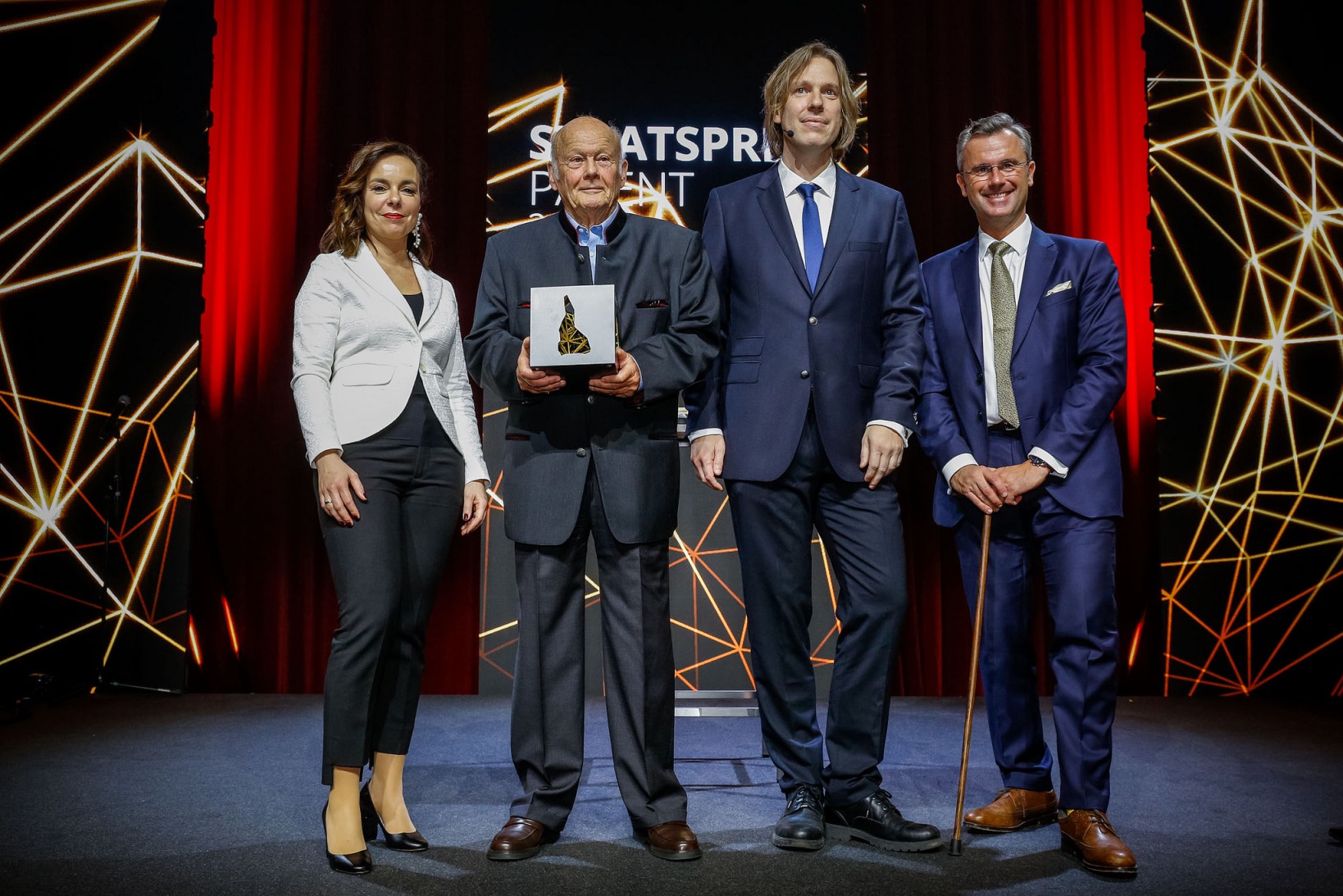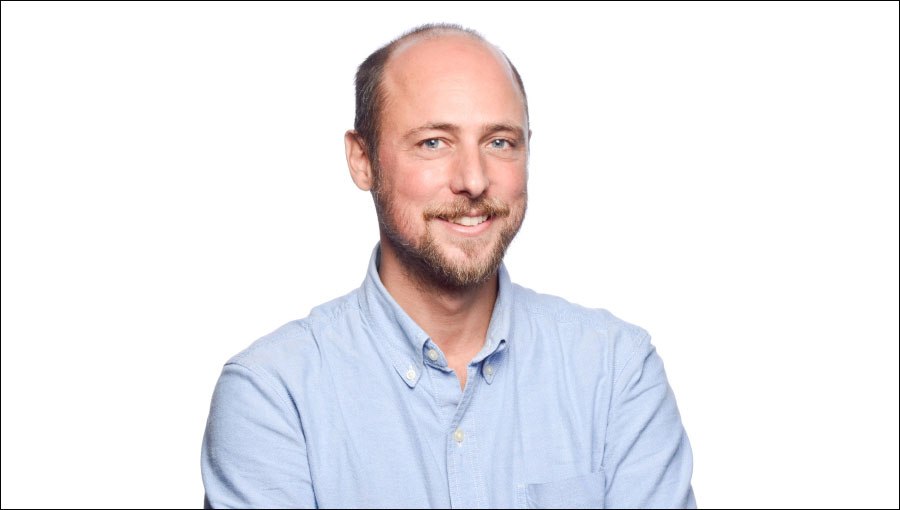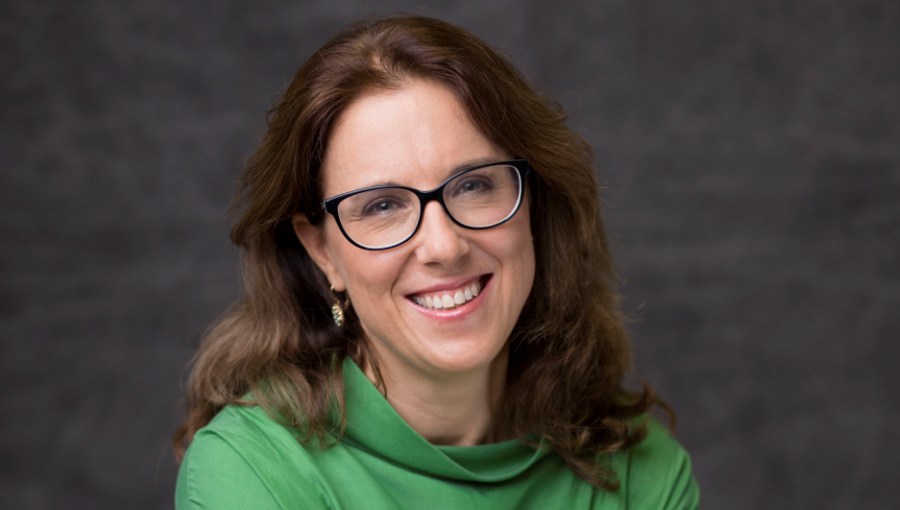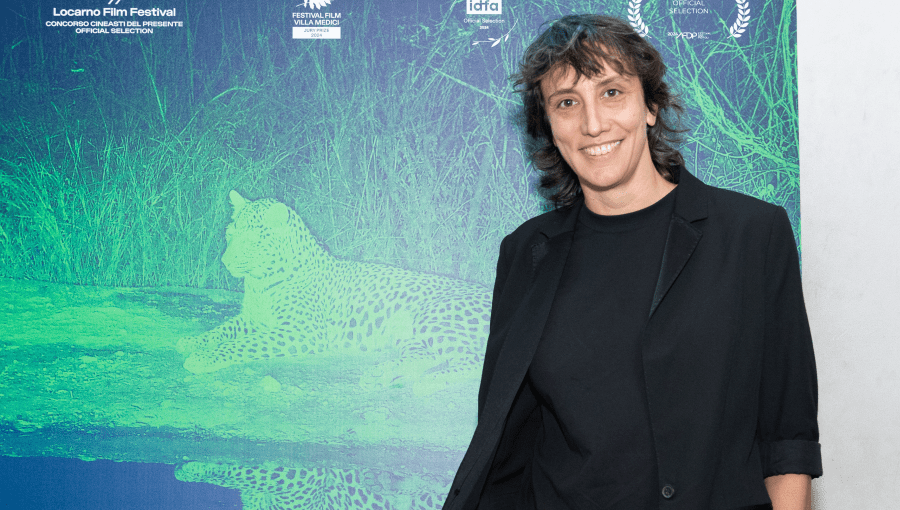Professor Stefan Sorgner Joins Judge Panel at Austrian Patent Ceremony
John Cabot University philosophy professor Stefan Lorenz Sorgner was invited to present the winner of the lifetime achievement award of the Austrian Patent agency 2018. He joined a distinguished jury which consists of leading experts in the field of emerging technologies, such as: CEO of KTM Stefan Pierer, general director of IBM Austria Patricia Neumann, the rector of the Technical University Vienna Sabine Seidler, Senior Vice President Innovation & Technology of Borealis Maurits van Tol, and Business Angel Michael Altrichter.

From right: Hofer, Sorgner, Bartenbach, Karepova.
©Patentamt
During the award presentation, Professor Sorgner was on stage with the Austrian minister of innovation and technology, Norbert Hofer, the winner of the lifetime achievement award, Christian Bartenbach, and the director of the Austrian patent agency, Mariana Karepova.
In addition, Sorgner’s latest monograph, Brave New Human (Schöner Neuer Mensch), published by Nicolai Publishing, was released on October 23, 2018. In the book, he presented his own vision of the genetic new human, the implanted new human, the digital new human, and the conceptual new human.
On November 16, 2018, Professor Sorgner has been invited to present the implication of his reflections concerning the future of the humanities at the “In the Era of the 4th Industrial Revolution, the Way to Humanities” conference at Ewha Womans University in Seoul. During the conference, Professor Sorgner plans to take insight from his article “The Future of Education: Genetic Enhancement and Metahumanities.” The article states: “In the Age of the Fourth Industrial Revolution, humanities students need to be able to reflect upon the impacts of emerging technologies (Posthuman Studies), need to know what digital technologies can do (Digital Literacy), and need to be able to include new technologies within their research (Digital Humanities). The inclusion of these disciplines in the humanities field could be referred to as metahumanities, as it goes beyond the humanities, but it is also inclusive concerning the reflections on the latest emerging developments. Meta means both beyond as well as in between, so that the term can capture both elements in an appropriate manner.”





